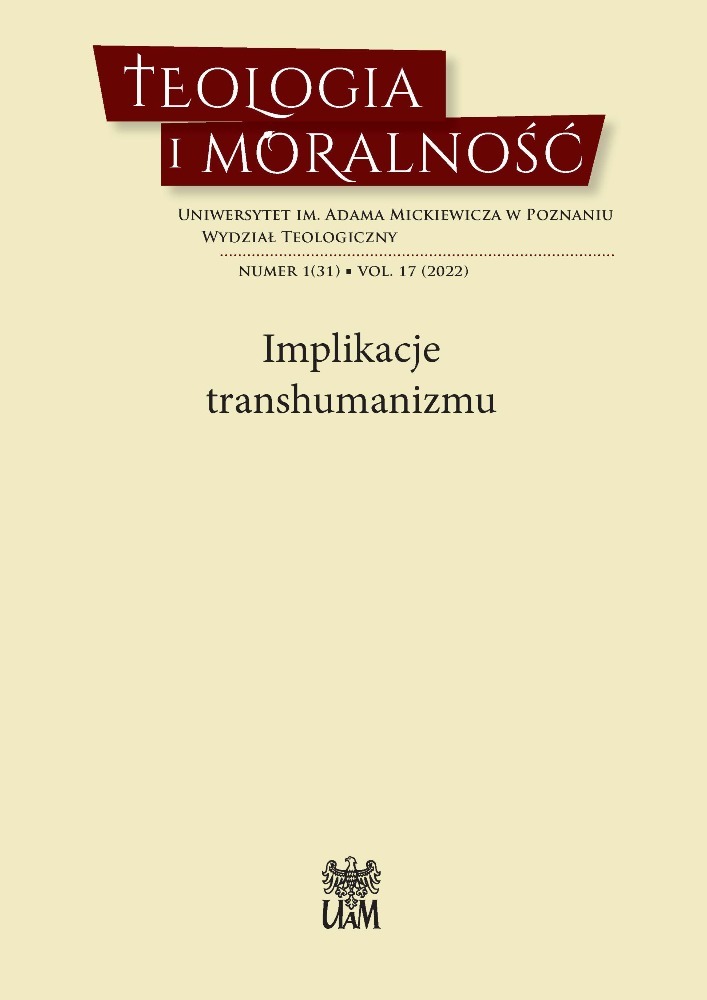Abstract
Given that the transhumanist vision of the world is frequently painted as desirable for people and optimistically utopian, the article’s aim is to investigate one of such visions, imagined by Scott Westerfeld in The Succession duology to see if such a utopian model accounts for the necessity of the survival of humanity. While avoiding the usual strictly dystopian and alarmist scenarios, Westerfeld’s postmortal and extropian world is rife with challenges to the transhumanist ideas, asking about the actual grounds on which future communication and cooperation would be based, and the limits of enhancement that need to be drawn not to lead to dehumanization.
References
Asla, Mariano. 2018. “El Transhumanismo (TH) como ideología: ambigüedades y dificultades de la fe en el progreso.” Scio: Revista de Filosofía, 15: 63-96.
Asla, Mariano. 2020. “Transhumanismo.” In Diccionario Interdisciplinar Austral. http://dia.austral.edu.ar/Transhumanismo.
Bostrom, Nick. 2013. “Why I Want to Be a Posthuman When I Grow Up.” In The Transhumanist Reader, edited by Max More, and Natasha Vita-More, 28-53. Chichester: Wiley-Blackwell.
Bugajska, Anna. 2019. “Will Postmortal Catholics Have «The Right to Die»? The Transhumanist and Catholic Perspectives on Death and Immortality.” Forum Philosophicum 24, no. 2: 397-433. https://doi.org/10.35765/forphil.2019.2402.17.
Bugajska, Anna, and Lucas E. Misseri. 2020. “Sobre la posibilidad de una ética posthumana: propuesta de un enfoque normativo combinado.” Isegoría: Revista de Filosofía Moral y Política 63: 425-449. https://doi.org/10.3989/isegoria.2020.063.08.
Dvorsky, George. 2008. “All Together Now: Developmental and ethical considerations for biologically uplifting nonhuman animals.” Journal of Evolution and Technology 18, no. 1: 129-142.
Hauskeller, Michael. 2016. Mythologies of Transhumanism. London: Palgrave Macmillan.
Hughes, James. 2004. Citizen Cyborg: Why Democratic Societies Must Respond to the Redesigned Human of the Future. New York: Basic Books.
Immortality Institute. 2004. The Scientific Conquest of Death: Essays on Infi nite Lifespans. Buenos Aires: LibrosEnRed.
Kurzweil, Ray. 2006. Singularity Is Near. London: Duckworth Overlook.
Kymlicka, Will. 2011. Zoopolis: A Political Theory of Animal Rights. Oxford: Oxford University Press.
Latour, Bruno. 2014. Anthropology at the Time of Anthropocene - a personal view of what is to be studied. http://sector2337.com/wp-content/uploads/2015/06/Latour_Anthropocene.pdf.
More, Max. 2013. “The Philosophy of Transhumanism.” In The Transhumanist Reader, edited by Max More, and Natasha Vita-More, 3-17. Chichester: Wiley-Blackwell.
More, Max, and Natasha Vita-More eds. 2013. The Transhumanist Reader. Classical and Contemporary Essays on the Science, Technology, and Philosophy of the Human Future. Chichester: Wiley-Blackwell.
Roden, David. 2015. Posthuman Life: Philosophy at the Edge of Human. Oxon, New York: Routledge.
Westerfeld, Scott. 2003b. The Killing of Worlds. New York: Tor.
Westerfeld, Scott. 2003a. The Risen Empire. New York: Tor.
License
Copyright (c) 2022 Anna Bugajska

This work is licensed under a Creative Commons Attribution-NoDerivatives 4.0 International License.

